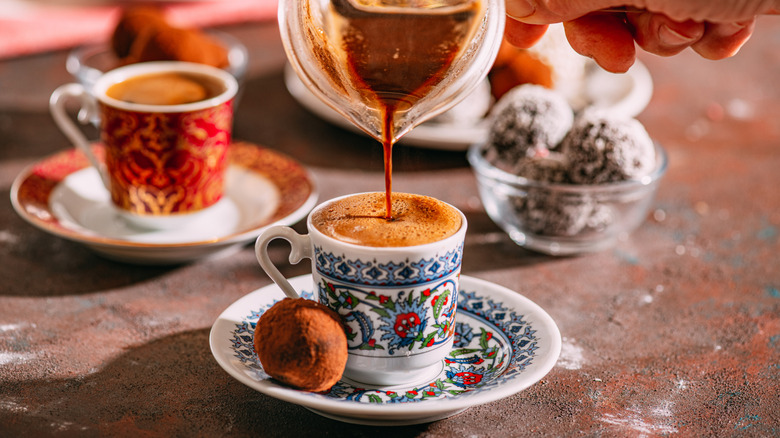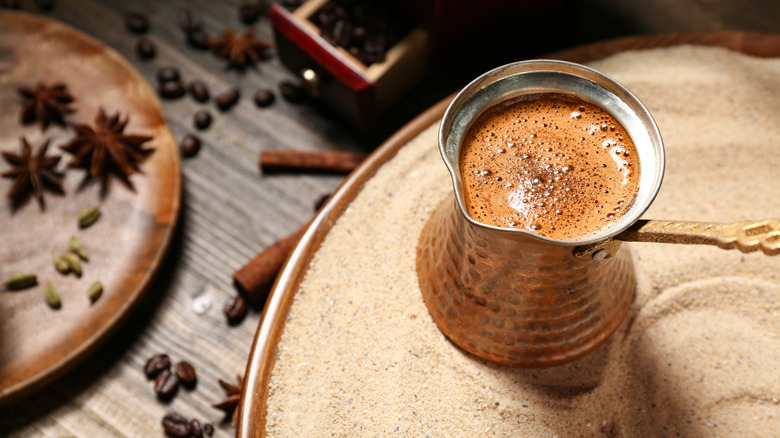Why It's A Mistake To Add Sugar To Turkish Coffee After Brewing
Coffee pots and espresso machines keep grinds separated from the coffee, but grinds remain in the cup in Turkish coffee. Who would want to drink a gritty cup of coffee? Don't knock it until you try it — Turkish coffee, which shares similarities to Greek coffee, is thick, delicious, highly concentrated, and aromatic. Coffee beans are ground finely, near the consistency of powder, and boiled with a small amount of water, around 3 ounces per serving. The intensity of the coffee may make you want to add some sugar — but remember to do this before the coffee is brewed.
If you want sugar or milk, it must be mixed in with the water and coffee before brewing. All of these components should first be added to the cezve, a traditional copper pot with a handle — only then can it be placed over heat. Stirring in sugar, during or after brewing, will cause the sediment of grounds at the bottom of the cup to rise, and it will take a few minutes for them to settle again.
The weight of the grounds naturally allows them to fall to the bottom after the heat exposure is completed. Before it is served, it's left to sit for a few minutes until the grounds stop floating around in the cup. Wait one extra minute after it is served to start sipping the coffee — just like how you never want to pour grinds down the sink, you also never want a mouth full of grinds.
Turkish coffee is more than just a beverage
With origins reaching back 500 years, Turkish coffee is not just a caffeinated beverage, but an important cultural custom. In fact, it was named an Intangible Cultural Heritage item on UNESCO's Representative List in 2013. While the fine grind is key, Turkish coffee does not use beans from a particular country – what defines this coffee is its preparation method and the customs that surround the drink. Served in cafés, bazaars, and in the home, the tradition of Turkish coffee represents friendship, family, and community. Turkish coffee serves as an invitation for conversation and connection.
For a drink with so much history, is adding sugar to Turkish coffee a big no-no? Not at all — if you're a sweet coffee fan, don't be afraid to ask for sugar. There are two measurements used for adding sweetness; orta is an average level, with 1 teaspoon of sugar, while super sweet is called şekrerli, with 2 teaspoons.
If you forget to ask for sugar when you order Turkish coffee, hopefully, the beverage is served alongside lokum, also known as Turkish delight. This traditional sweet treat is often served alongside the coffee to provide a balance against the intense flavor. A cold glass of water is also a common accompaniment for the coffee — not for rinsing grounds out of your mouth, but to act as a palate cleanser between each sip.

